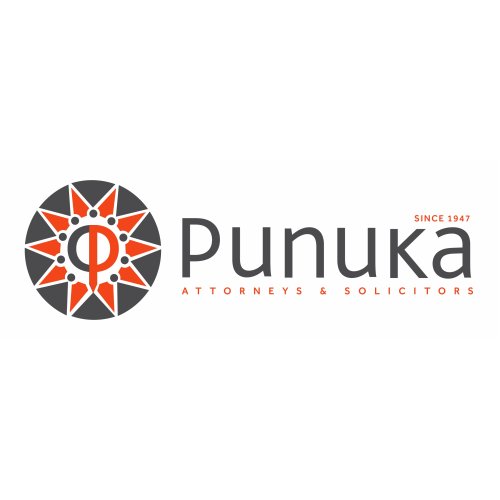Best Fintech Lawyers in Asaba
Share your needs with us, get contacted by law firms.
Free. Takes 2 min.
List of the best lawyers in Asaba, Nigeria
About Fintech Law in Asaba, Nigeria
Fintech, short for financial technology, refers to the application of technology to provide financial services. Asaba, Nigeria, is experiencing rapid growth in the Fintech sector, with various startups and companies offering innovative financial solutions.
Why You May Need a Lawyer
Seeking legal advice regarding Fintech matters in Asaba, Nigeria, can be crucial to ensure compliance with the law, protect your rights, and navigate complex regulations. A lawyer can assist in various situations, such as:
- Drafting and reviewing Fintech-related contracts and agreements
- Assessing regulatory requirements for Fintech startups or businesses
- Handling intellectual property matters related to Fintech innovations
- Resolving disputes or litigations in the Fintech industry
Local Laws Overview
Fintech in Asaba, Nigeria, is governed by several laws and regulations. Some key aspects include:
- The Central Bank of Nigeria (CBN) Act, which provides regulatory oversight for Fintech activities
- The Nigerian Communications Commission (NCC) Act, which governs telecommunication and data-related aspects of Fintech
- The Cybercrimes Act, which addresses cybersecurity and digital fraud issues relevant to Fintech
Frequently Asked Questions
Q: What licenses or permits are required to operate a Fintech business in Asaba, Nigeria?
A: The specific licenses and permits depend on the nature of your Fintech business. It is essential to consult with a lawyer who can guide you through the registration and licensing requirements based on your business model.
Q: Are there any regulations for data protection in Fintech?
A: Yes, data protection is vital in Fintech. The Nigeria Data Protection Regulation (NDPR) provides guidelines for the collection, storage, and processing of personal data. Compliance with NDPR is crucial to protect users' data and avoid legal issues.
Q: Can I partner with traditional financial institutions as a Fintech startup?
A: Yes, collaborations between traditional financial institutions and Fintech startups are common. However, it is essential to establish clear agreements and comply with relevant regulations to ensure a mutually beneficial and legally compliant partnership.
Q: What legal challenges can arise in Fintech transactions?
A: Fintech transactions may face legal challenges such as breach of privacy, data breaches, contract disputes, intellectual property infringement, financial fraud, and regulatory compliance issues. Consulting with a lawyer can help you navigate and mitigate these challenges.
Q: How can I protect my Fintech company's intellectual property rights?
A: Intellectual property rights, such as patents, trademarks, and copyrights, are crucial in the Fintech industry. To protect your company's innovations, it is advisable to engage a lawyer who specializes in intellectual property law to assist with registration, licensing, and enforcing your intellectual property rights.
Additional Resources
For further information and assistance in Fintech matters, consider the following resources:
- The Central Bank of Nigeria (CBN) - www.cbn.gov.ng
- The Nigerian Communications Commission (NCC) - www.ncc.gov.ng
- The Nigeria Deposit Insurance Corporation (NDIC) - www.ndic.gov.ng
- The Nigerian Securities and Exchange Commission (SEC) - www.sec.gov.ng
Next Steps
If you require legal assistance or have further questions about Fintech in Asaba, Nigeria, we recommend:
- Contacting reputable law firms specializing in Fintech or business law
- Discussing your specific needs and concerns with a lawyer
- Providing relevant documentation and information for a comprehensive evaluation
- Following the guidance and advice provided by your lawyer
Lawzana helps you find the best lawyers and law firms in Asaba through a curated and pre-screened list of qualified legal professionals. Our platform offers rankings and detailed profiles of attorneys and law firms, allowing you to compare based on practice areas, including Fintech, experience, and client feedback.
Each profile includes a description of the firm's areas of practice, client reviews, team members and partners, year of establishment, spoken languages, office locations, contact information, social media presence, and any published articles or resources. Most firms on our platform speak English and are experienced in both local and international legal matters.
Get a quote from top-rated law firms in Asaba, Nigeria — quickly, securely, and without unnecessary hassle.
Disclaimer:
The information provided on this page is for general informational purposes only and does not constitute legal advice. While we strive to ensure the accuracy and relevance of the content, legal information may change over time, and interpretations of the law can vary. You should always consult with a qualified legal professional for advice specific to your situation.
We disclaim all liability for actions taken or not taken based on the content of this page. If you believe any information is incorrect or outdated, please contact us, and we will review and update it where appropriate.










